Premium Only Content

🔴 1975 Eurovision Song Contest Full Show From Stockholm (No Foreign Language Commentary)
Date: 22 March 1975 - Host Venue: Stockholmsmässan, Stockholm, Sweden
Presenter: Karin Falck - Musical director: Mats Olsson
Directed by Bo Billtén - Executive supervisor: Clifford Brown
Executive producer: Roland Eiworth - Host broadcaster: Sveriges Radio (SR)
Interval act: The World of John Bauer
The Eurovision Song Contest 1975 was the 20th edition of the annual Eurovision Song Contest. It took place in Stockholm, Sweden, following ABBA's win at the 1974 contest in Brighton, United Kingdom with the song "Waterloo". It was the first time the contest took place in Sweden, also marking the first time the Scandinavian Peninsula hosted the event. The contest was held at Stockholmsmässan on Saturday, 22 March 1975. The show was hosted by Karin Falck.
Nineteen countries participated in the contest, beating the previous record of eighteen, that was first set in the 1965 edition. France and Malta returned after their one-year and two-year absence, respectively. Turkey made its debut, while Greece decided not to enter after its debut the year prior.
The winner was the Netherlands with the song "Ding-a-dong", performed by Teach-In, written by Will Luikinga and Eddy Ouwens, and composed by Dick Bakker. This was the Netherlands' fourth victory in the contest, following their wins in 1957, 1959, and 1969. It would be another 44 years before the Netherlands' next win.
The venue for the contest was Stockholmsmässan (or Stockholm International Fairs in English). The main building is in Älvsjö – a southern suburb of Stockholm Municipality for which the building got its nickname. It was constructed in 1971 and holds 4,000 people.
Nineteen countries took part; Greece decided not to enter after its 1974 debut, while Turkey made its debut, and France and Malta returned to the contest.
The Portuguese entry "Madrugada" was an unabashed celebration of the Carnation Revolution, during which the country's 1974 Eurovision entry had played a pivotal practical role. According to author and historian John Kennedy O'Connor in his book The Eurovision Song Contest – The Official History, the Portuguese performer had to be dissuaded from wearing his Portuguese army uniform and carrying a gun onto the stage. Some competitors (notably Portugal and Yugoslavia) opted to perform their songs in English for the rehearsals heard by the judges, but in their native tongue at the final. Others, such as Belgium and Germany, opted for a mix of their own language and English.
Results:
Draw Country Artist Song Language Place Points
01 Netherlands Teach-In "Ding-a-dong" English 1 152
02 Ireland The Swarbriggs "That's What Friends Are For" English 9 68
03 France Nicole Rieu "Et bonjour à toi l'artiste" French 4 91
04 Germany Joy Fleming "Ein Lied kann eine Brücke sein" German, English 17 15
05 Luxembourg Geraldine "Toi" French 5 84
06 Norway Ellen Nikolaysen "Touch My Life (with Summer)" English 18 11
07 Switzerland Simone Drexel "Mikado" German 6 77
08 Yugoslavia Pepel in kri "Dan ljubezni" Slovene 13 22
09 United Kingdom The Shadows "Let Me Be The One" English 2 138
10 Malta Renato "Singing This Song" English 12 32
11 Belgium Ann Christy "Gelukkig zijn" Dutch, English 15 17
12 Israel Shlomo Artzi "At Va'Ani" (את ואני) Hebrew 11 40
13 Turkey Semiha Yankı "Seninle Bir Dakika" Turkish 19 3
14 Monaco Sophie Hecquet "Une chanson c'est une lettre" French 13 22
15 Finland Pihasoittajat "Old Man Fiddle" English 7 74
16 Portugal Duarte Mendes "Madrugada" Portuguese 16 16
17 Spain Sergio & Estíbaliz "Tú volverás" Spanish 10 53
18 Sweden Lasse Berghagen "Jennie, Jennie" English 8 72
19 Italy Wess & Dori Ghezzi "Era" Italian 3 115
-
 LIVE
LIVE
Randi Hipper
25 minutes agoWALL STREET'S CRYPTO BET REVEALED! HINT: IT'S NOT BITCOIN!
39 watching -
 LIVE
LIVE
The Mike Schwartz Show
1 hour agoTHE MIKE SCHWARTZ SHOW with DR. MICHAEL J SCHWARTZ 08-28-2025
110 watching -
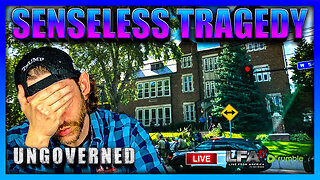 LIVE
LIVE
LFA TV
3 hours agoLFA TV ALL DAY STREAM - THURSDAY 8/28/25
5,801 watching -
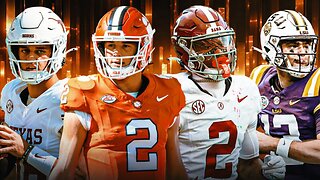 2:04:35
2:04:35
Game On!
19 hours ago $2.59 earnedCollege Football Is BACK! Week 1 Preview!
27.7K1 -
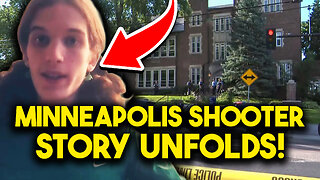 4:00:18
4:00:18
The Bubba Army
1 day agoMinneapolis Shooter Story Unfolds! - Bubba the Love Sponge® Show | 8/28/25
58.2K8 -
 LIVE
LIVE
JuicyJohns
1 hour ago $0.11 earned🟢#1 REBIRTH PLAYER 10.2+ KD🟢
27 watching -
 LIVE
LIVE
GritsGG
1 hour agoWin Streaking! Most Wins 3485+ 🧠
101 watching -
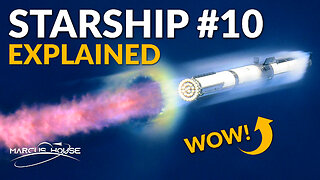 16:58
16:58
marcushouse
14 hours ago $3.98 earnedSpaceX Starship Flight 10: What Really Happened! 🚀
47.7K13 -
 3:47
3:47
Blackstone Griddles
15 hours agoCampground Meal Planning on the Blackstone Camping Griddle
19.8K1 -
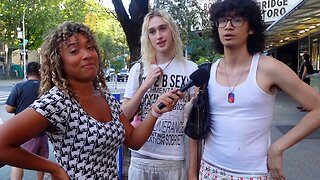 28:13
28:13
Her Patriot Voice
15 hours ago $1.99 earnedIs Flag Burning Free Speech?
23.6K20